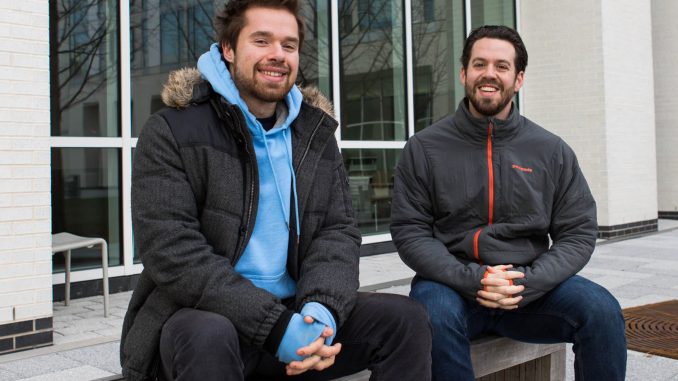
When Alex Tillery struggled with his substance use before coming to Temple, he thought he was alone.
Today, Tillery said wants to serve as an example for other people in recovery at Temple.
“What we hope to do is to advertise to those kids and be like, ‘Hey, I was right where you were and now I’m living a happy, successful and peaceful life,’” said Tillery, a sophomore legal studies major. “They can know that they’re not alone and they can come talk to us.”
Every Thursday night, Tillery helps lead the Temple University Collegiate Recovery Program, a peer group for students in recovery from substance use disorder. The peers hold weekly meetings in the first floor conference room of Morgan Hall South.
The group first formed in Spring 2017. Bob Lamb, a third-year master’s of public health in health policy and management student and president of Temple University Collegiate Recovery Program, said it’s beneficial to talk to other students who share an “actual lived experience” with substance use disorder.
“It’s not like coming in and talking to a therapist,” Tillery added. “It’s meeting with kids that have the same exact experiences as you.”
Last semester, two students died from overdoses in the same week. The Medical Examiner’s Office estimated 1,200 people died from overdoses in Philadelphia in 2017, compared to 900 people the previous year.
In a meeting following the two student deaths, Lamb said he saw increased turnout.
“You just see it in the news so much that you know it’s an issue, but until it happens to you or somebody in your community, it kind of just distances itself from you,” Lamb said. “Having an experience with two students within such a short period of time definitely brought a different light and different weight to the Temple community.”
Currently, the group mainly functions as a place for discussion. But one of the group’s early initiatives was to create a postcard compiling campus resources for addiction treatment. Jillian Bauer-Reese, a journalism professor and faculty adviser for the group, said because these resources are spread across Tuttleman Counseling Services, the Wellness Resource Center and other departments, it can be difficult for students to understand what services are available.
Additionally, Bauer-Reese said when she has searched “addiction” on Tuttleman Counseling Services’ website, the site only returns a list of off-campus services. Under “Specialized Services,” Tuttleman lists the Collegiate Recovery Program and Unicovery, a student organization focused on subtance use and mental health disorders. Unicovery disbanded about three years ago.
“The first place [the Tuttleman website] sends you is 19th and Walnut to an Alcoholics Anonymous or Narcotics Anonymous meeting, which is essentially telling students who are in need of help that they have to leave campus to get it,” said Bauer-Reese, who is also a person in recovery.
Bauer-Reese said one step the university can take is creating a single, comprehensive web page for campus recovery services. She also suggested that resident assistants and Allied Barton security guards be trained in administering Narcan, a nasal spray that reverses opioid overdoses.
“We need to be doing so much more as a university,” Bauer-Reese said. “We just had two students overdose, and I think there are a lot of other students who disappear mid-semester and withdraw from classes.”
One important resource students have on Main Campus, Lamb said, is the ability to obtain a prescription for Suboxone, a medication that helps relieve opiate cravings, from Tuttleman psychiatrists.
For Lamb, both peer support and counseling services were important to his recovery.
“I think it’s not beneficial to have one without the other,” Lamb said. “The synergy of the two [creates] a better recovery.”
While the group has yet to expand beyond its weekly meetings, Lamb said he hopes to host additional drug- and alcohol-free social events this semester for students in recovery.
“A lot of people bond over drinking and drug use,” Bauer-Reese said. “So that’s like a barrier to [people in] recovery if they don’t have a community of students who are in recovery that they can hang out with.”
Lamb added that a “lofty goal” of the group is to encourage the university to implement recovery housing, or housing designated for students living in recovery from substance use.
In Spring 2017, Temple Student Government’s Parliament unanimously approved a binding resolution to explore the creation of on-campus recovery housing.
As the group remains visible on Main Campus, Lamb said he thinks recovery issues will receive more attention.
“Continued involvement from the recovery community on Temple’s campus [will] show that these services are needed and will be beneficial to students,” Lamb said.
Ian Walker contributed reporting.


Be the first to comment